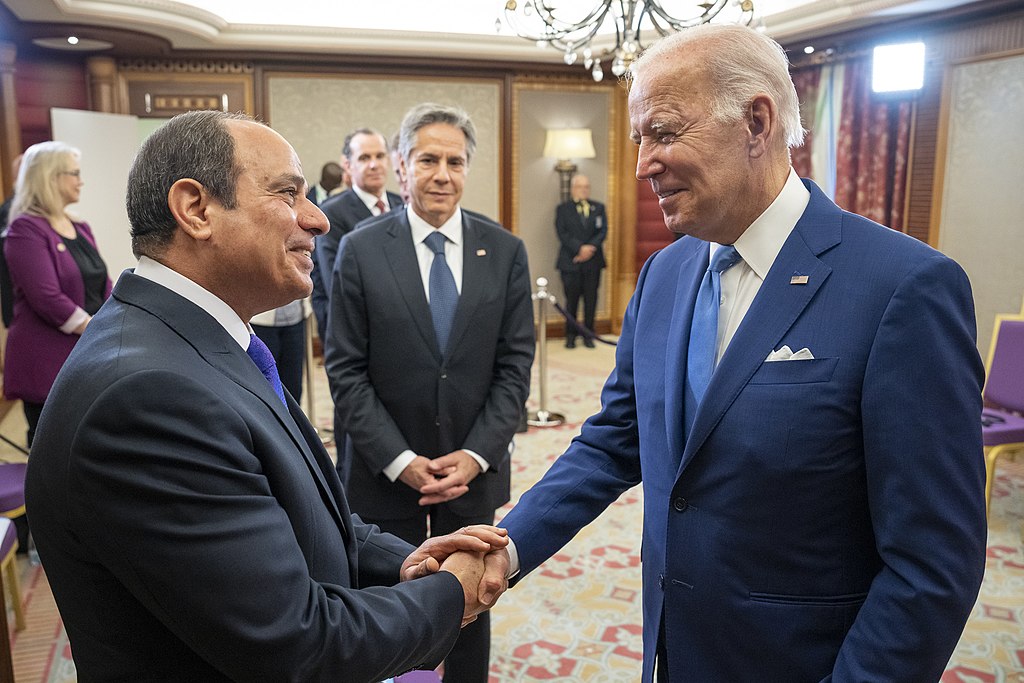What one arrest says about power in Egypt

President Biden with President Sisi in 2022
Hailey Brown - In mid-July, an Egyptian student and activist was sentenced to three years for allegedly distributing fake news. The sentence is typical in Egypt. The government has cracked down on citizens who speak out against the country, regardless of whether they share the truth. Patrick Zaki’s crime was sharing his experience as a Coptic Christian, a minority in Egypt. So why was he arrested?
The Arab Spring led to Egypt’s former President Hosni Mubarak’s regime being toppled. However, Egyptian protesters were divided. Protests exploded as Mohamed Morsi, the Muslim Brotherhood candidate, was elected president in 2012. In response, the military ousted Morsi and assumed power. Later, Abdel Fattah el-Sisi, a military leader, was elected president. Sisi has since utilized his tools of material power, the bulk of which comes from emergency law and the actions of police and the courts. Sisi’s government uses these institutions to suppress internal criticism through different avenues, such as arrests like Zaki’s. Emergency powers allow for state control of all criminal cases, and anti-terrorism law has wide connotations, limiting peaceful protest. Egypt’s NGO law applies to national and international entities, imposing limits on activity that violates a wide skew of undefined terms such as national security and public order. The end goal of such stringent laws and frequent arrests? To garner greater ideological power, strengthening Sisi’s position nationally and internationally.
Zaki’s arrest and sentencing led to a massive outcry in Italy, the country where he received his Master’s degree. Yet the Italian government has hesitated to condemn the arrest. And while the U.S. State Department called for his immediate release, the country continues to send over a billion dollars in bilateral aid to Egypt each year. Countries hesitate to outwardly oppose Sisi and Egypt’s practices in order to maintain diplomatic and trade relations within the context of regional geopolitics. Individuals like Zaki are then left to wait out their sentences while protesters must choose whether to continue to risk the same fate.
Image Source: The White House, Public domain, via Wikimedia Commons

